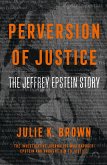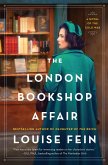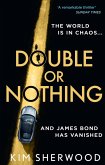"The Ladybird will refuse to have anything to do with the affair, my dear fellow. It touches a woman's honour, and I know her too well." "Bah! We'll compel her to help us. She must." "She wouldn't risk it," declared Harry Kinder, shaking his head. "Risk it! Well, we'll have to risk something! We're in a nice hole just now! Our traps at the Grand, with a bill of two thousand seven hundred francs to pay, and 'the Ladybird' coolly sends us from London a postal order for twenty-seven shillings and sixpence-all she has! "
Dieser Download kann aus rechtlichen Gründen nur mit Rechnungsadresse in A, B, BG, CY, CZ, D, DK, EW, E, FIN, F, GR, HR, H, IRL, I, LT, L, LR, M, NL, PL, P, R, S, SLO, SK ausgeliefert werden.









